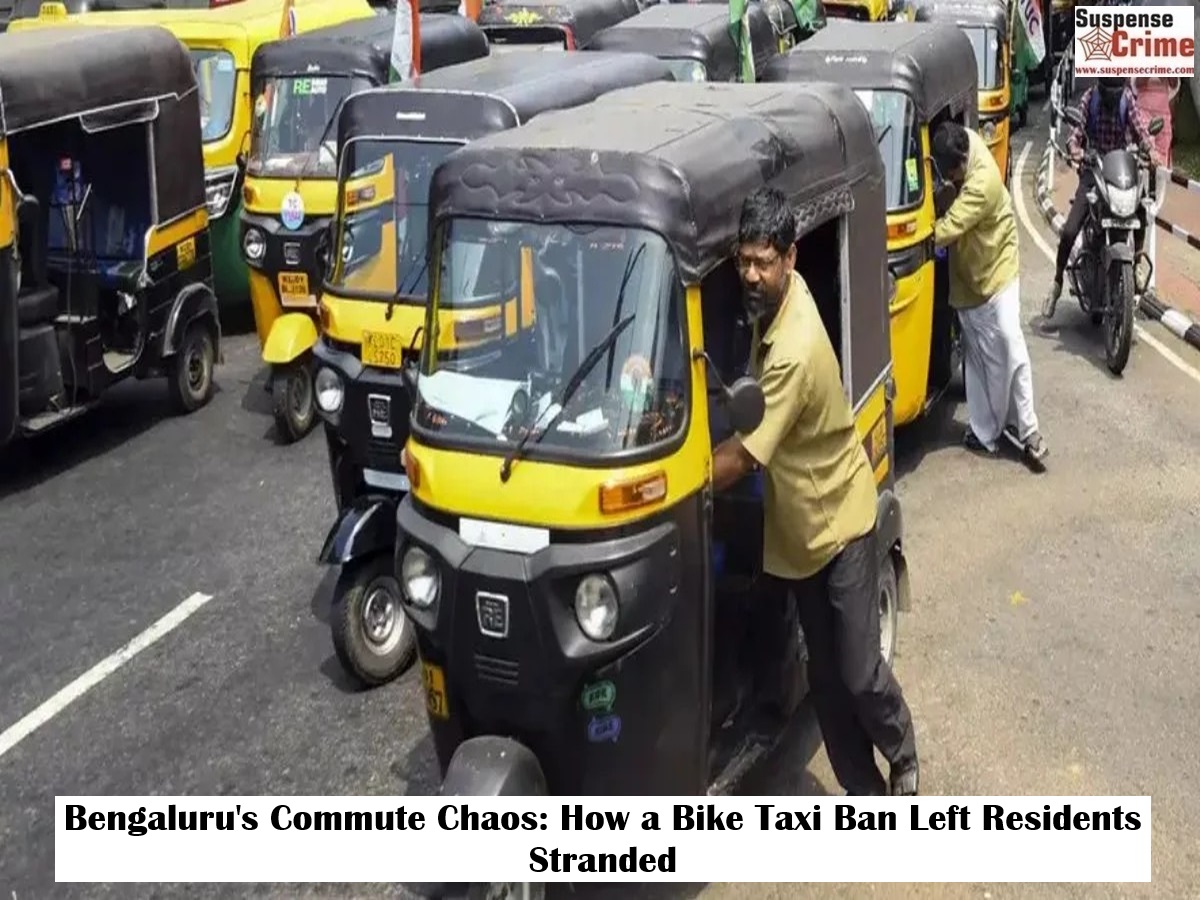
Suspense crime, Digital Desk : Imagine starting your day with a reliable, affordable commute option, only for it to vanish overnight. This became a stark reality for countless Bengaluru residents recently, as a state government order effectively brought bike taxi services like Ola and Uber Bike to a grinding halt. What seemed like a simple regulatory move quickly transformed into a daily nightmare for commuters, as experienced firsthand by one Moneycontrol journalist.
The disruption was immediate and profound. On a day requiring a quick trip from a public transport hub, the journalist found themselves stranded. The familiar apps, usually teeming with available bike taxis, suddenly showed "no rides available" for the chosen service. This wasn't a glitch; it was the direct consequence of the Karnataka government's directive. The state asserted that these aggregators lacked the necessary licenses to operate bike taxi services, an order that was subsequently upheld by the Karnataka High Court.
Left without their usual mode of last-mile connectivity, the individual faced a frustrating dilemma. Walking for a significant distance under the scorching sun became the only immediate alternative. Eventually, after a lengthy trek, they managed to hail an auto-rickshaw – but at a significantly inflated surge price, far exceeding the cost of the now-unavailable bike taxi. This single experience underscored the critical role these two-wheelers played in Bengaluru's congested urban landscape, offering a quick, agile, and most importantly, affordable solution for short distances, especially connecting to bus stops or metro stations.
While some aggregators like Rapido continued to operate under a different policy, the widespread impact of the ban on Ola and Uber's bike services created a vacuum. This isn't just an inconvenience; it affects thousands of daily commuters, including students, office-goers, and daily wage earners, who relied on these services for their daily livelihoods and schedules. The ban also raises questions about the fate of the gig economy workers – the bike riders themselves – who suddenly found their income streams cut off.
The sudden clampdown highlights the ongoing tension between rapidly evolving urban transport solutions and the need for comprehensive, clear regulatory frameworks. For now, a city once zipping along with convenient bike taxis finds itself grappling with increased commute times, higher costs, and the challenging task of finding viable alternatives for its bustling population.
Read More: The Hostel Segregation Row What the SC Stay on UGC 2026 Regulations Means for You

 Share
Share


_1531794722_100x75.jpg)
_591321350_100x75.jpg)